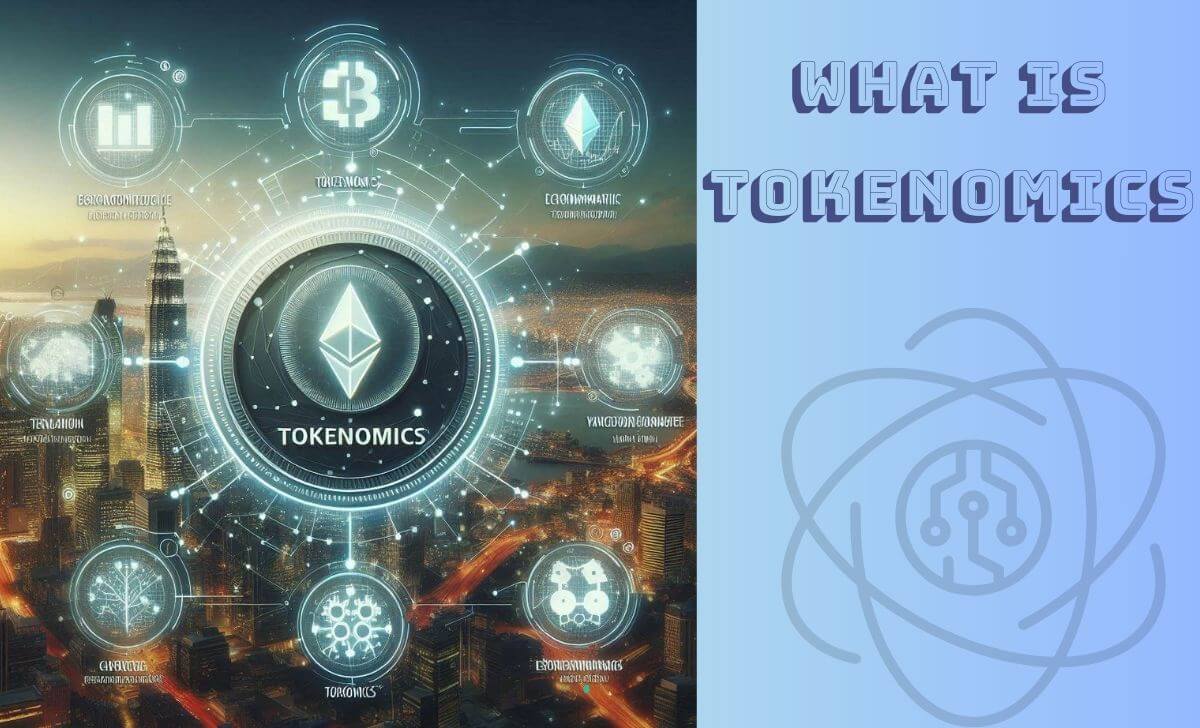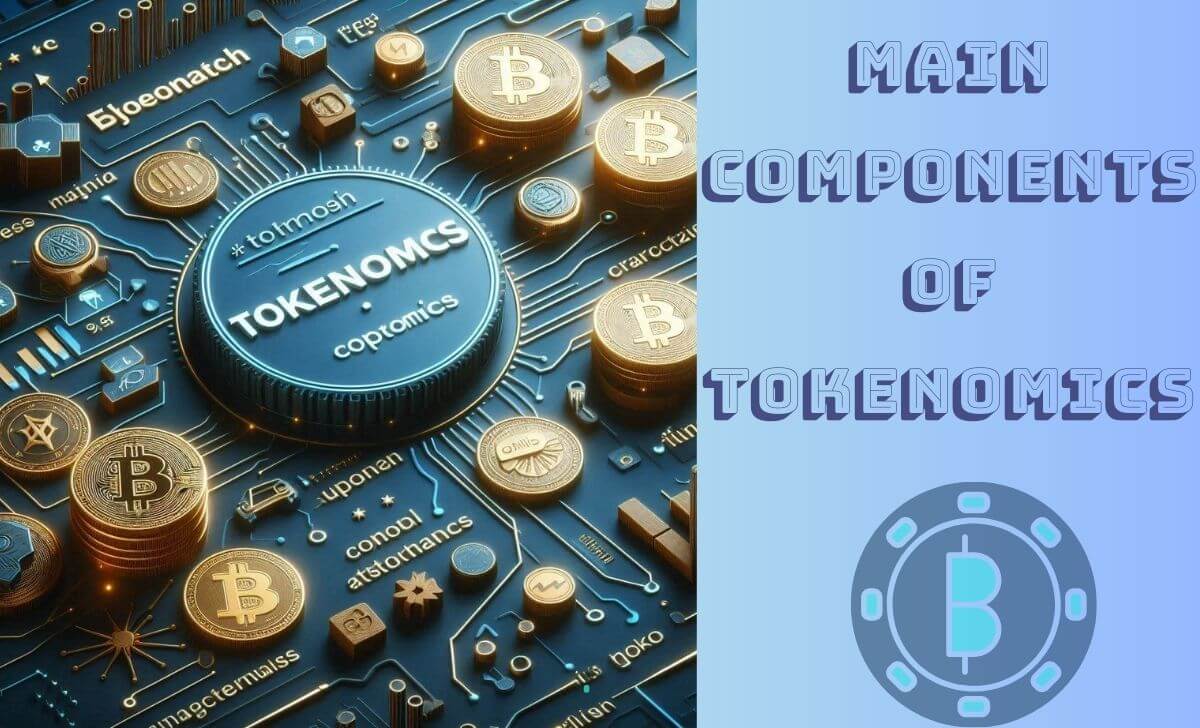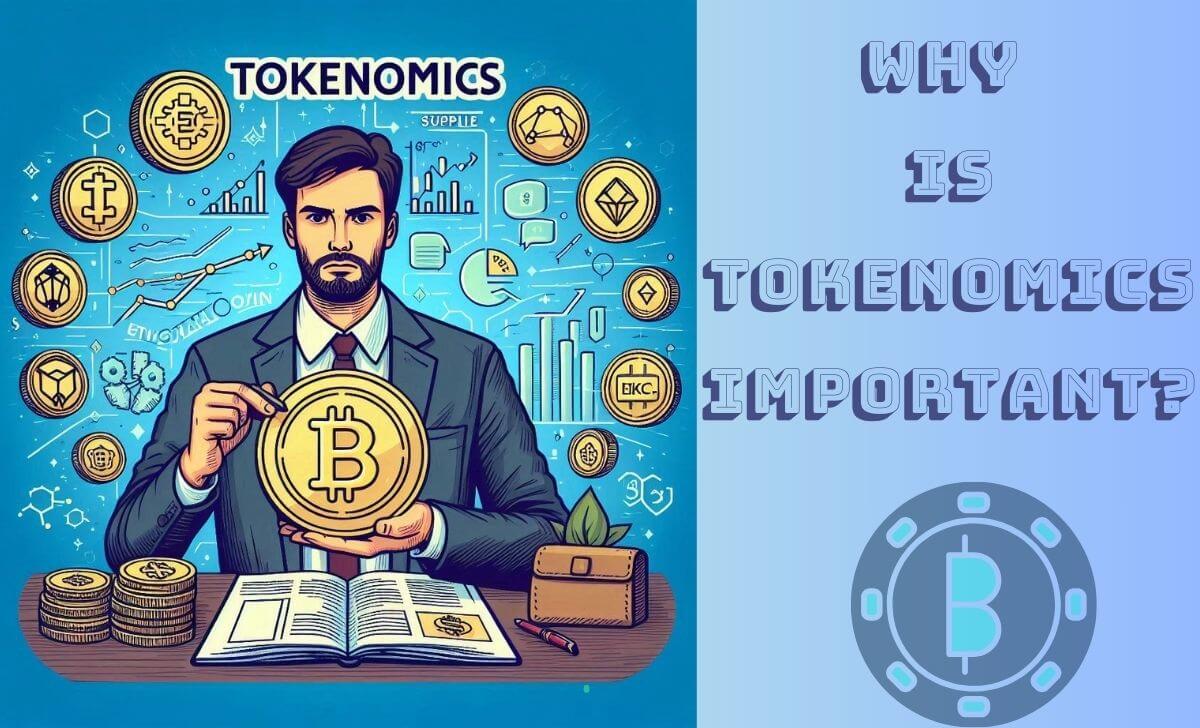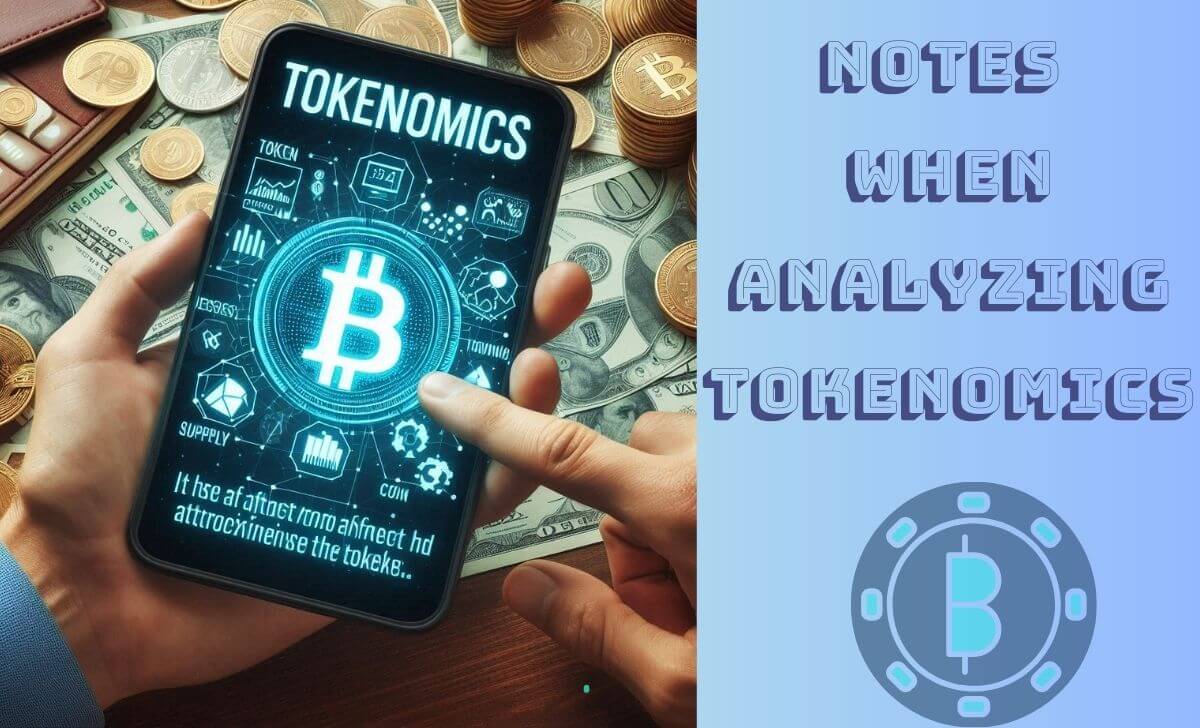Tokenomics is an important concept in the cryptocurrency world, combining token and economics to describe the factors that affect the value and attractiveness of a token/coin in the market.
Following the AZCoin article, you will learn about the components that make up Tokenomics and why it is important in cryptocurrency investment.
What is Tokenomics?

Tokenomics is a field of study that studies the factors that influence the value and usability of tokens in a blockchain ecosystem. It includes factors such as token supply, issuance, distribution, and economic characteristics. A good Tokenomics system can create strong incentives for project development and growth.
Main components of Tokenomics

Below are the key components of Tokenomics:
- Token supply: This is the total number of tokens that will be issued. The supply can be fixed or flexible, and directly affects the value of the token through the laws of supply and demand.
- Token utility: The utility of a token refers to its use cases. Tokens can be used to pay transaction fees, participate in governance mechanisms, or receive rewards.
- Token distribution: How tokens are initially and subsequently distributed is an important factor. This includes distribution to the development team, investors, and the community.
- Token burn schedule: Some projects have a token burn mechanism to reduce the supply, which can increase the value of the token if demand remains stable or increases.
- Incentive mechanism: Projects often design incentive mechanisms to encourage users to participate and hold the token, such as staking rewards or airdrops.
Key features of Tokenomics
Below are the key features of Tokenomics:
- Mining and Staking Rewards: Mining and staking rewards allow users to earn tokens by solving complex problems or locking tokens to support the network, enhancing security and consensus.
- Payments: Payment tokens are used to make financial transactions and purchases within the blockchain ecosystem, facilitating the exchange of value and payment for services.
- Governance: Governance tokens allow holders to participate in important project decision-making, including protocol upgrades and budget allocations, helping to sustain the development and improvement of the ecosystem.
- Token Burn: Token burning removes a portion of tokens from circulation to reduce supply and increase scarcity, which can increase the value of the remaining tokens in the system.
These features together make up the Tokenomics ecosystem, which greatly influences the value and function of tokens on the blockchain.
Why is Tokenomics important?

Tokenomics plays a key role in determining the value and appeal of cryptocurrency projects. Here are some reasons why Tokenomics is important:
- Impact on token value: The law of supply and demand is an important part of Tokenomics. When the supply of tokens is limited and demand is high, the value of tokens tends to increase. Conversely, if supply increases without a corresponding increase in demand, the value of tokens may decrease.
- Transparency: Tokenomics provides a transparent view of how tokens are distributed and managed, which helps investors assess the credibility of a project. Knowing the schedule for token issuance and allocation reduces the risks associated with price volatility and non-transparent behavior from stakeholders.
- Incentivizing participation and holding tokens: Tokenomics often include mechanisms such as mining and staking rewards to incentivize users to participate and hold tokens. This not only helps maintain the network but also creates incentives for the community to contribute and develop the project.
- Community influence: Some projects use tokens to empower the community to participate in the governance process through models such as DAO. This helps increase transparency and fairness in decisions about project development and adjustment.
- Create sustainable value: Tokenomics also helps create sustainable value for the project by adjusting the supply and using token burning mechanisms to keep the value of the token from decreasing. This helps maintain the appeal of the token in the long term, a factor often highlighted during an ICO to attract early investors.
Notes when analyzing Tokenomics

When analyzing Tokenomics, investors should pay attention to the following factors:
- Token sale: The token sale process (Seed Sale, Private Sale, Public Sale) provides insight into how tokens are distributed and the participation of large investors.
- Token release schedule: The token release schedule can affect the stability of the token price. Projects with long release schedules often demonstrate stability and commitment from the development team.
- Token allocation: How tokens are distributed among investors, development teams, and the community can affect the momentum and value of the token.
For more insights on tokenomics and how to evaluate them effectively, AZcoin – best crypto exchange 2024 provides comprehensive resources and expert analysis.
Conclusion
Above is the basic information about Tokenomics and its importance in investing and developing cryptocurrency projects. Hopefully, the article has helped you better understand how Tokenomics affects the value and appeal of tokens. For more updates and in-depth analysis, follow the next articles of AZcoin.

I’m Jessi Lee, currently living in Singapore. I am currently working as a trader for AZCoin company, with 5 years of experience in the cryptocurrency market, I hope to bring you useful information and knowledge about virtual currency investment.
Email: [email protected]











